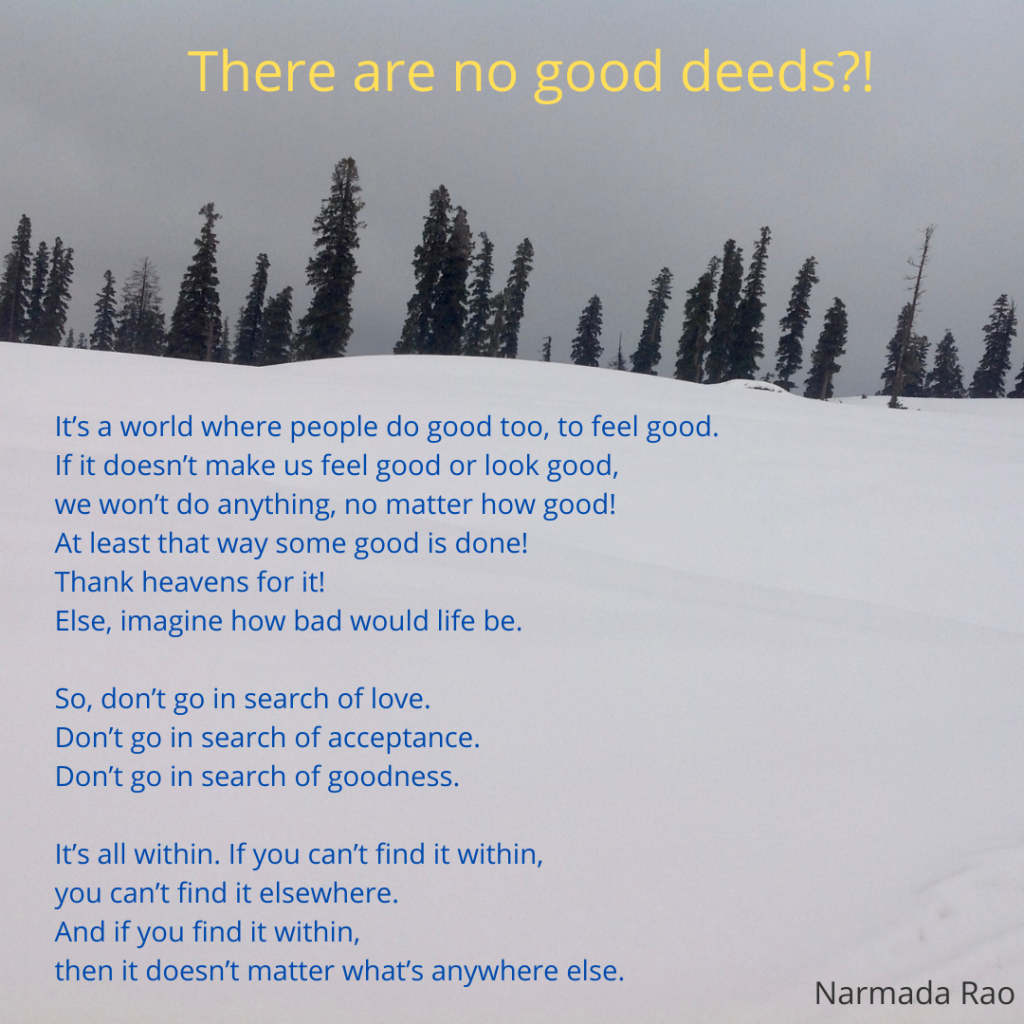There is nobody or nothing in this world that can solve all our problems! So, we shouldn’t waste our time looking for that! If things are bothering us, then we are our biggest problem. Thoughts don’t come; anger doesn’t come; irritation doesn’t come to us. We create those. Since we create those, only we can remove them by removing the importance we give to ourselves.
Learn what needs to change within you to handle yourself better. Learn how you can sail through life without much resistance and have more openness! Then anyone can help. Else, no one can! We are all here for the same purpose, i.e. learning! Not flatter ourselves or our egos! If talking for hours would solve problems, we’d have no problems at all by now. Understanding yourself and breaking down your ego will help solve your problems. Look for someone who can help you dismantle your ego, not soothe it and instigate it further. Don’t look for people who are interested in listening to your problems. If anyone is interested in your problems, it is unhealthy. Look for people who are interested in YOU! Then they can guide you towards your well-being. Stop giving undue importance to yourself and your problems and expecting others also to do that. If you want to help yourself, be a good listener. Most problems are solved if you shut the mind and open your heart.
Don’t believe that anyone can heal you or hurt you! Only you can do that for yourself. The illusions that we believe create the miseries that we experience. Detach yourself from yourself. Look at yourself from a far off place – we are all a small speck of dirt! Nothing more! We have a temporary abode. Then how can our problems have a permanent residence? It’s a short life. The choice we have is to either live in the illusion of misery or experience freedom. Don’t look for long term associations with therapists. Don’t create dependencies that chain you to believing that you are insufficient or good because someone reinforces that for you.
You are the creator’s creation, and He has made no mistake in creating you. It is left up to you to recognise the innate goodness in you and around you. Be open to learning from everyone without chaining or getting chained. It’s okay to fall. But never choose to stay down. You may need momentary help to get back on your feet. But don’t expect anyone to teach you how to walk all over again just because you fell. Your fall has given you more experience yourself if you are open to learning from your mistakes. Avoid feeling sorry for yourself. You don’t need it. All of life is an experience. The monsters and the heroes of your life are all your creation. Exaggerated perceptions create exaggerated effects on us. We kill mosquitoes and ants, which doesn’t affect us as much – because they are tiny creations, perhaps. But even if someone hurts us, it affects us a lot. Because we have a larger than life, exaggerated perception of ourselves. It doesn’t help! Imagine if we look at ourselves as ants or that speck of dirt, most problems wouldn’t even arise. When we minimise everything else, we maximise our awareness. When we maximise our awareness, we develop the ability to view everything in perspective. That’s when you solve all your problems yourself!
If you observe what you feel, it will pass.
If you identify with what you feel, it will affect you.
No one can hurt you. They can only make you get in touch with the hurt that’s already within you!
No one can irritate you. They can only make you realise the irritation that’s already within you!
No one can make you feel loved. They can only make you recognise the love that’s already within you.
No one can make you feel anything that isn’t already a part of you. If you are feeling it, it is already within you. They just helped you get in touch with what’s within. Thank them for it!
If you don’t like what you are feeling, change what’s within you! Then no matter what happens outside, what you feel inside will be what you want to feel.

